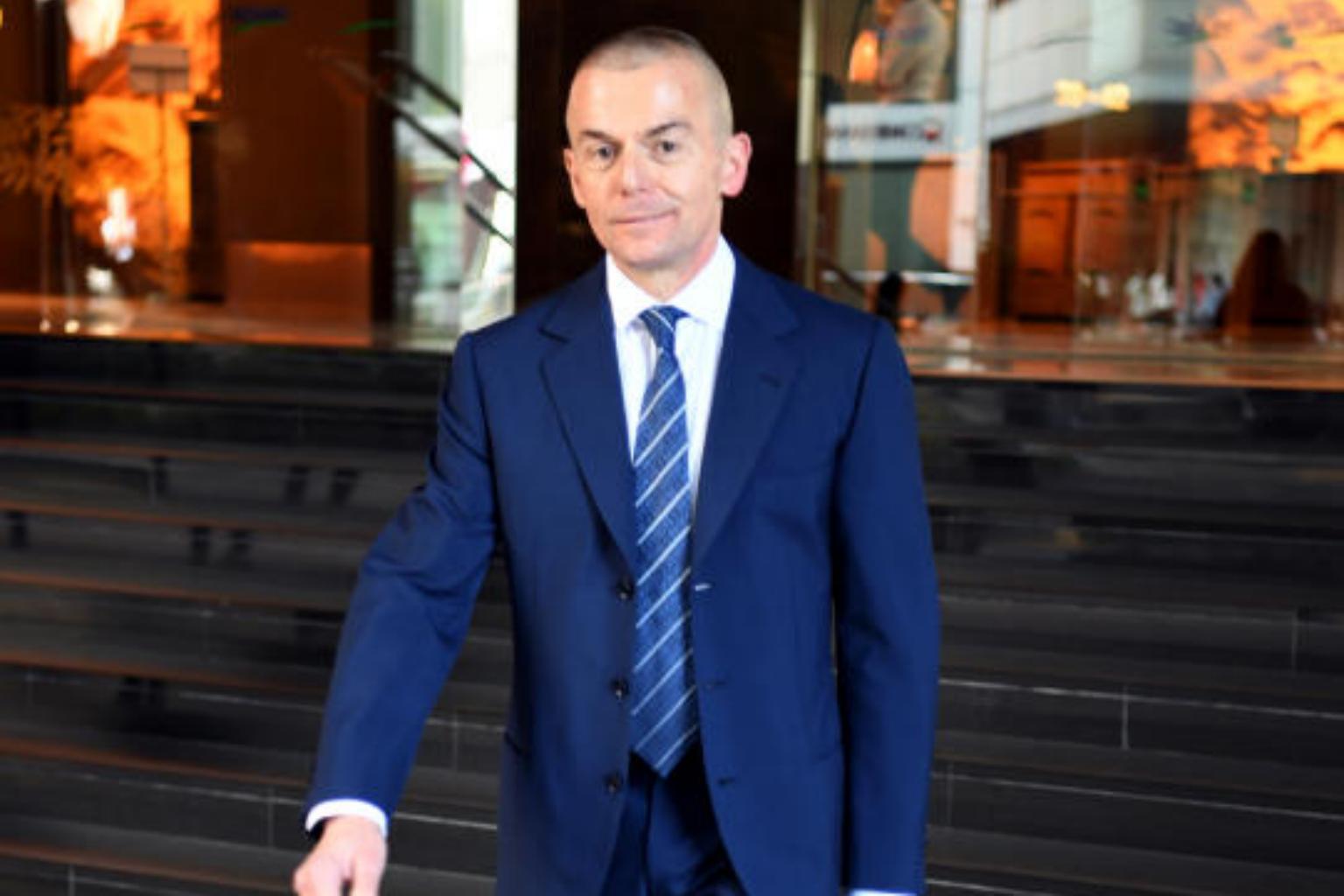Hacking firm sues former employee for helping competitor develop defensive software
Sign up now: Get ST's newsletters delivered to your inbox

Mr David Vincenzetti, CEO of an Italy-based company called Hacking Team, which sells spyware to law enforcement agencies of various governments, took the stand in an employment dispute between the firm and a former employee on Aug 14.
ST PHOTO: KHALID BABA
SINGAPORE - An Italy-based company called HT, or Hacking Team, which sells spyware to law enforcement agencies in more than 45 countries, has accused a former employee of helping an "outsider" develop an antidote to its key software.
HT's chief executive officer David Vincenzetti, who told the High Court on Tuesday (Aug 14) that he "personally invented offensive security" in 2003, was taking the stand in an ongoing hearing into an employment dispute between HT and Singaporean Woon Wee Shuo.
HT is suing Mr Woon for alleged breaches of his duties to the company and his employment agreement, which bars him from working for a competitor while employed by HT and from joining a competitor within a year of leaving HT.
Mr Woon was employed by HT as a security specialist from Aug 17, 2012, to March 20, 2015. He formally joined a Malta-registered company called ReaQta on Oct 6, 2015, after it offered him a consulting agreement on April 1 that year.
HT's key product, Galileo, is a remote control system which allows users to bypass encryption, collect relevant data from targeted devices and continue monitoring the targeted devices.
It purports to be "almost impossible to detect", meaning that terrorists and criminals are unaware that the communications on their devices are being monitored.
The company's lawyer, Mr Adrian Tan of TSMP Law Corporation, argued that HT suffered an "irreparable blow" when Mr Woon, with the knowledge of confidential information, helped ReaQta develop an antidote to Galileo.
The antidote, called ReaQta-core, is a defensive software that monitors user's activities, file access and applications, and also purportedly neutralises Galileo.
HT alleges that while Mr Woon was still its employee, he was engaging in the business of ReaQta and holding himself out to be its co-founder.
Mr Woon, who is represented Mr Choo Zheng Xi of Peter Low & Choo LLC, denies breaching his employment agreement with HT.
He argues that ReaQta is not a competitor to HT because it creates defensive technology, while HT creates offensive technology.
He contends that he has no access to the source codes of Galileo and played no part in designing or producing ReaQta-core.
Mr Woon says the co-founder title was given to him to put him in a better position to market ReaQta.
He has counterclaimed against HT for unpaid wages and Central Provident Fund contributions from Feb 6 to March 20, 2015.
Under cross-examination on Tuesday, Mr Vincenzetti agreed that Galileo and ReaQta-core are opposites - one is the infector and the other is the antidote.
However, he told the court that law enforcement agencies would never buy Galileo if an antidote is shown to exist.
"Between 50 and 60 major government agencies are trusting us for their national security," said Mr Vincenzetti.
"Our product is only used for fighting terrorism or serious organised crime," he said. "If an antidote existed... that would immediately jeopardise the reputation of our company."
He questioned how ReaQta, a small and new company, could do a better job than "titans" such as McAfee, Symantec and Kaspersky.
"They could do it because they exploited extremely confidential information they had access to," he said.
He said Mr Woon was "just one piece in ReaQta" who contributed to the creation of the antidote. Crucially, Mr Woon helped maintain testing of the antidote.
"He had all the latest versions, updated with the hardware and software... so he was an insider helping (an) outsider to test the effectiveness of the antidote."


